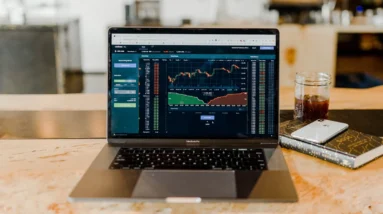
The economic impact of US Elections: insights on the upcoming November 2024 vote
As the 2024 elections approach, the potential economic impacts are drawing keen attention from economists, investors, and the public alike. This article delves into the economic ramifications of US elections, with a particular focus on the upcoming November 2024 elections.
Historical Economic Impact of US Elections
US elections have traditionally created periods of economic uncertainty, which can influence market behavior, consumer confidence, and investment decisions. Historical data suggests that presidential elections can lead to fluctuations in the stock market. For instance, the S&P 500 index often exhibits increased volatility during election years, reflecting the market’s sensitivity to potential policy changes.
Presidential candidates’ economic policies play a critical role in shaping market expectations. Policies on taxation, regulation, government spending, and trade can significantly impact different sectors of the economy. For example, the 2016 election saw a marked market response to Donald Trump’s victory, primarily due to his proposed tax cuts and deregulation promises. The anticipation of these policies led to a post-election surge in stock prices, particularly in sectors like finance and energy.
Economic Uncertainty and Market Volatility
Elections introduce a level of economic uncertainty that can cause market volatility. Investors often become cautious, leading to fluctuations in stock prices. This is partly due to the potential for significant policy shifts that can alter the business environment. The uncertainty surrounding election outcomes and their subsequent policy implications can lead to decreased business investment and hiring, as companies may adopt a wait-and-see approach until the political landscape becomes clearer.
The 2024 elections are expected to follow this pattern, with key issues such as taxation, healthcare, climate change, and trade taking center stage. The candidates’ differing approaches to these issues could have far-reaching impacts on various sectors. For instance, a candidate favoring aggressive climate policies could significantly affect the energy sector, while changes in healthcare policy could impact the pharmaceutical and insurance industries.
Impact on the Stock Market
The stock market is highly sensitive to election outcomes due to the potential for new policies that can affect corporate profits and economic growth. Historical trends show that the market can experience heightened volatility in the months leading up to an election as investors react to polling data and campaign promises.
For example, the 2016 election saw significant market movements based on the perceived pro-business stance of Donald Trump, with sectors like banking and energy benefiting from anticipated deregulation and tax cuts. Conversely, sectors perceived as vulnerable to regulatory changes, such as renewable energy, faced increased uncertainty.
Business Investment and Hiring
The uncertainty associated with election outcomes can also impact business investment and hiring decisions. Companies may delay major investments or expansion plans until the political landscape becomes clearer. This wait-and-see approach can lead to a temporary slowdown in economic activity.
For instance, businesses in industries such as healthcare and finance, which are heavily regulated, may hold off on making strategic decisions until they understand the potential regulatory changes that a new administration could implement. This cautious approach can dampen economic growth in the short term.
Consumer Confidence and Spending
Consumer confidence is another critical factor influenced by elections. The uncertainty and potential for significant change can impact consumer sentiment, which in turn affects spending behavior. High consumer confidence typically translates to increased spending, which drives economic growth. Conversely, low confidence can lead to reduced spending and economic slowdown.
Leading up to the 2024 elections, consumer confidence will likely fluctuate as the political climate evolves. The economic platforms of the candidates will be scrutinized for their potential impact on job creation, wage growth, and inflation. Policies aimed at boosting economic growth and reducing inequality could bolster consumer confidence, while uncertainty or unfavorable economic proposals could dampen it.
Influence of Media Coverage
Media coverage of the election can significantly influence consumer confidence. Constant news updates, polls, and expert analyses can sway public sentiment. For example, if the media emphasizes the potential negative economic impacts of a particular candidate’s policies, consumer confidence may decline.
Additionally, social media platforms amplify public discourse, often leading to heightened emotions and polarized views, which can further influence consumer behavior and spending patterns. Understanding the interplay between media coverage and consumer confidence is crucial for predicting economic trends during election periods.
The Role of Public Opinion
Public opinion, as reflected in polls and surveys, can also impact consumer confidence. If a candidate perceived as pro-business gains traction in the polls, consumer confidence may rise in anticipation of favorable economic policies. Conversely, if a candidate with policies perceived as detrimental to economic growth leads the polls, consumer confidence may wane.
Policy Implications and Long-Term Economic Impact
The economic impact of elections is not limited to the short term. The policies implemented by the winning candidate can have lasting effects on the economy. Tax reforms, regulatory changes, and government spending priorities set by the administration can shape economic conditions for years. For example, the tax cuts and deregulation measures implemented during the Trump administration had significant long-term impacts on corporate profits and investment patterns.
As the 2024 elections approach, long-term economic policies will be a crucial focus. Issues such as fiscal responsibility, debt management, and social welfare programs will be debated extensively. The direction these policies take will influence the country’s economic trajectory for the foreseeable future.
Taxation and Fiscal Policy
Tax policy is often a central issue in presidential elections. Candidates’ proposals on taxation can have widespread effects on both individual taxpayers and businesses. Lower taxes on corporations and individuals can stimulate economic activity by increasing disposable income and encouraging investment. Conversely, higher taxes can lead to reduced spending and investment but may be necessary for addressing fiscal deficits and funding public services.
In the 2024 elections, debates over tax policy will likely focus on issues such as income inequality, corporate tax rates, and the funding of social programs. The outcome of these debates will significantly impact the economic landscape in the coming years.
Regulatory Environment
Regulation is another key area where presidential elections can have a long-term economic impact. Deregulation can lead to increased business activity and economic growth by reducing compliance costs and barriers to entry. However, it can also result in negative externalities, such as environmental degradation and financial instability.
Conversely, increased regulation can protect consumers and the environment but may also stifle economic activity. The 2024 elections will likely feature debates on the appropriate level of regulation in areas such as environmental protection, financial markets, and labor rights. The policies adopted by the next administration will shape the regulatory landscape and influence economic outcomes.
The Role of Trade Policies
Trade policies are another critical area influenced by presidential elections. Free trade agreements can boost economic growth by increasing market access for domestic producers and lowering costs for consumers. However, they can also lead to job losses in industries that face increased competition from foreign producers.
Conversely, protectionist trade policies can protect domestic industries but may lead to higher prices for consumers and retaliatory measures from trading partners. The 2024 elections will likely see significant debate over trade policies, with implications for industries ranging from manufacturing to agriculture.
Impact on Global Economic Relations
US elections can also impact global economic relations. The policies adopted by the next administration will influence the country’s relationships with key trading partners and international organizations. For example, shifts in trade policy can affect global supply chains and economic growth in other countries.
Additionally, the US’s approach to international agreements on issues such as climate change and intellectual property rights can have far-reaching implications for the global economy. Understanding the potential global impact of US election outcomes is crucial for businesses and policymakers worldwide.
Social Welfare Programs and Economic Inequality
Social welfare programs are another area where presidential elections can have significant economic implications. Programs such as Social Security, Medicare, and unemployment benefits play a crucial role in reducing economic inequality and providing a safety net for vulnerable populations.
The 2024 elections will likely feature debates over the funding and scope of these programs, with significant implications for economic inequality and social stability. Proposals to expand social welfare programs can reduce inequality but may require increased taxation or borrowing. Conversely, proposals to cut these programs can lead to increased inequality and social unrest but may improve fiscal sustainability.
Healthcare Policy
Healthcare policy is a particularly important area of debate in US elections. The cost and availability of healthcare have significant implications for economic well-being and quality of life. Proposals to expand access to healthcare can improve public health and reduce economic inequality but may require significant government spending.
Conversely, proposals to reduce government involvement in healthcare can lower public spending but may lead to increased healthcare costs for individuals and reduced access to care. The 2024 elections will likely see significant debate over healthcare policy, with implications for economic outcomes and public well-being.
Education Policy
Education policy is another critical area where presidential elections can have long-term economic impacts. Investments in education can boost economic growth by improving the skills and productivity of the workforce. Proposals to increase funding for education can reduce economic inequality and improve social mobility but may require increased taxation or borrowing.
Conversely, proposals to cut education funding can reduce public spending but may lead to lower educational attainment and increased economic inequality. The 2024 elections will likely see significant debate over education policy, with implications for economic growth and social mobility.
Long-Term Economic Planning and Sustainability
Long-term economic planning and sustainability are crucial considerations in the context of presidential elections. The policies adopted by the next administration will shape the country’s economic trajectory for decades to come. Issues such as climate change, infrastructure investment, and fiscal responsibility will be key areas of debate.
Policies aimed at promoting long-term economic sustainability can ensure that future generations inherit a stable and prosperous economy. Conversely, short-term policies that prioritize immediate economic gains at the expense of long-term sustainability can lead to significant economic challenges in the future.
Climate Change and Environmental Policy
Climate change and environmental policy are increasingly important areas of debate in US elections. Policies aimed at reducing greenhouse gas emissions and promoting renewable energy can mitigate the long-term impacts of climate change and create new economic opportunities.
However, these policies can also face opposition from industries that rely on fossil fuels and may lead to higher energy costs in the short term. The 2024 elections will likely see significant debate over climate change and environmental policy, with implications for economic sustainability and global leadership.
Infrastructure Investment
Infrastructure investment is another critical area of long-term economic planning. Investments in transportation, energy, and communications infrastructure can boost economic growth by improving efficiency and creating jobs.
However, these investments require significant public spending and can face opposition from those who prioritize fiscal restraint. The 2024 elections will likely see significant debate over infrastructure investment, with implications for economic growth and competitiveness.

The London Stock Market surpasses Paris: financial shifts in Europe
The recent shifts in the European financial landscape underscore the importance of political stability and market confidence.

Understanding mutual funds: a comprehensive overview to smart investing
Mutual funds offer a convenient and effective way to invest in a diversified portfolio managed by professionals.

The healthcare sector: characteristics and how to invest in it
The healthcare sector’s defensive characteristics, coupled with its potential for growth driven by technological innovations and demographic changes, make it an attractive investment option.

Donald Trump embraces Bitcoin: campaign now accepting Lightning Network donations
Donald Trump’s decision to accept donations via the Lightning Network marks a significant milestone in the intersection of cryptocurrency and politics.

Brent Oil and WTI: what is the difference?
Brent oil and WTI represent two critical benchmarks in the global oil market, each with distinct characteristics and market implications.

Penny Stocks: what they are, how they work, and how to invest
Penny stocks offer a unique investment opportunity with the potential for significant returns. However, they come with substantial risks due to their volatility, lack of proven success, and susceptibility to manipulation.

Achieve financial freedom: 5 key concepts to transform your life
Achieving financial freedom is not about finding a quick fix or shortcut. It’s a comprehensive process that involves curiosity, honest self-assessment, clear goal setting, strategic planning, and building a supportive network.
